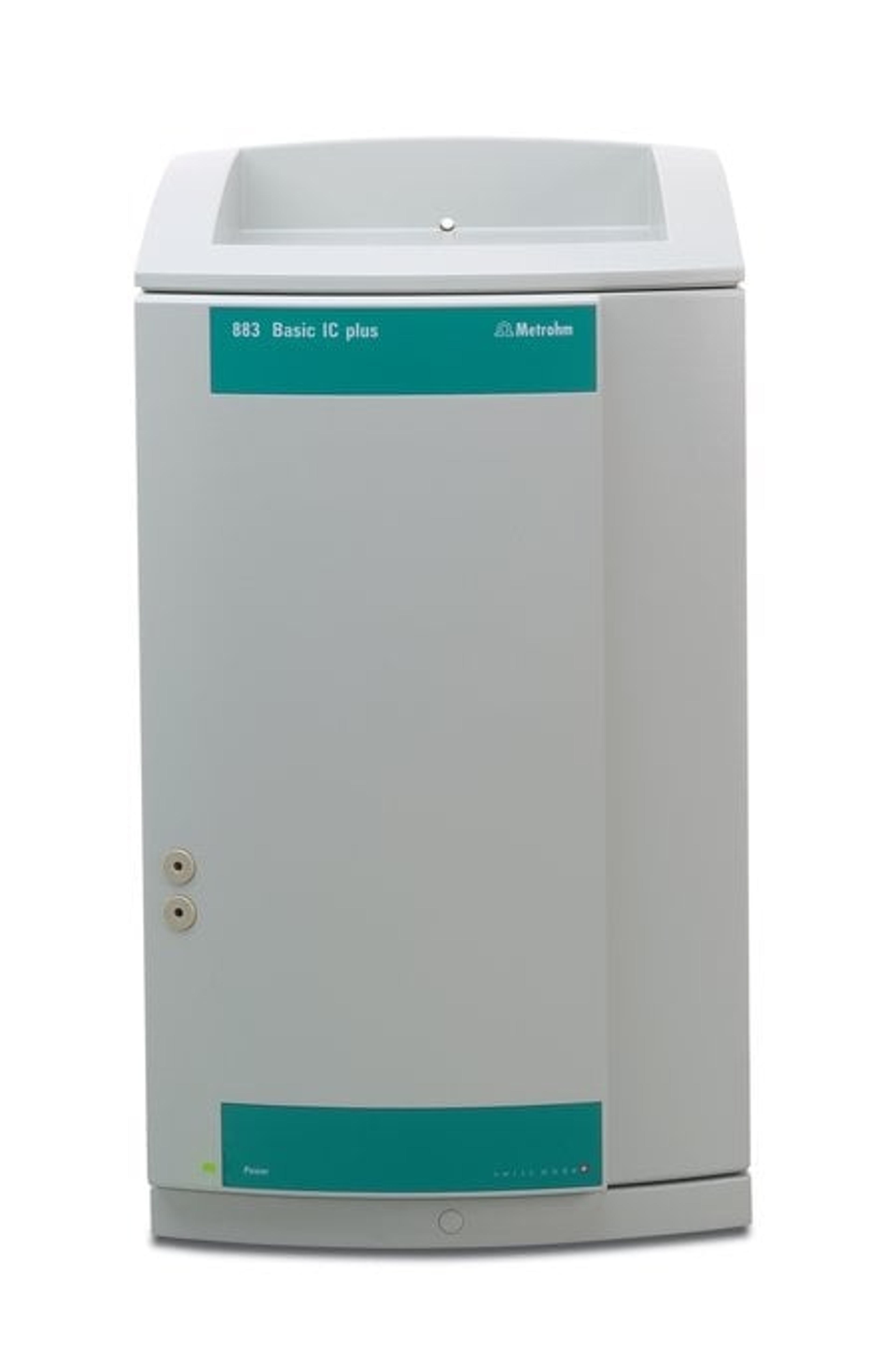Determination of Sulfate and Chloride in Bioethanol by Ion Chromatography
20 Oct 2009The US norm ASTM D 4806 defines the quality requirements for denatured ethanol used in fuels. Recently, a new specification concerning the permitted sulfate and chloride content has been added. ASTM D 7319-07 recommends ion chromatography with direct injection using a conductivity detector with «packed-bed» suppressor as a suitable test method.
ASTM D 7319-07 is the method of choice
The method is suitable for the determination of the potential sulfate content or total sulfate content from 1.0 to 20 mg/kg and a total chloride content from 1.0 to 50 mg/k (ASTM D 7318). A second ion chromatography method exists (ASTM D 7328-07e1), but is more complicated to carry out and is also more error-prone. The total inorganic sulfate content in bioethanol can also be determined by potentiometric titration (ASTM D 7318-07).
Metrohm provides the superior system
During ASTM round robins the Metrohm IC System for determining the sulfate content excelled by its performance, particularly of its «packed-bed» suppressor module. In combination with the Metrohm CO2 Suppressor, the background conductivity is reduced to an absolute minimum. As conductivity detection takes place under the best conditions, chromatograms with extremely low noise are obtained. The round robin showed that the «packed-bed» suppressor from Metrohm is clearly superior to the other suppressor systems tested.

